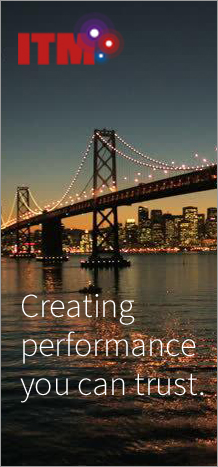Blockchain
ITM encourages any innovation or technological enhancement which could simplify and bring value to the travel industry. One such innovation is blockchain. In recent times we have all heard about blockchain due to the popularity and existence of cryptocurrencies like Bitcoin and Ethereum. However, the origins of blockchain can be traced as far back as the 1980s.
A definition of blockchain, otherwise referred to as distributed ledger technology (DLT), is technology that prevents digital transactions from being altered using a distributed eco-system in a secure and transparent way. The makeup of such a distributed eco-system is powered by a collection of networks and systems worldwide, each keeping copies of the data in encrypted blocks.
Having such a pattern allows us to think of solutions in travel differently by creating a decentralised sharing economy that effectively provides these instant benefits:
- High data quality and full transparency
- Increased speed
- Lower cost
- Reduced security risks
To provide a practical use case of blockchain in the travel industry, we discuss each benefit:
High data quality and full transparency - Mostly within the travel sector all vendors manage a set of their own content (central data repository controlled by a single entity) from where they share content with their respective buyer or traveller. At scales of economies this might not always be accurate or up to date. By having information stored on a blockchain infrastructure, this then becomes accessible to all peers on the blockchain network, making data transparent and immutable. This system lends itself nicely to having a decentralised global distribution system or channel manager offering for companies in the travel industry to peer with.
Lower costs - A blockchain implementation could displace or reduce overhead costs such as transaction fees and deposits, and can even overcome local taxes due to laws and regulations traditionally associated with direct ecommerce transaction in the travel industry by running over a blockchain network infrastructure similar to ones used in cryptocurrency. This will bring the direct guest and supplier closer without those associated overheads. Companies could couple this new model with cryptocurrencies to support payments across borders, further reducing costs and fees. Such a model could work as seamlessly in London as it would in New York, or more remote global locations.
Increased speed - The backbone of a blockchain network is performance based by default, therefore by leveraging its workings, such as by implementing a smart contract (in which programs stored on the blockchain execute immediately should a condition be met) processes can be made more efficient. By programming such smart contracts, the travel industry could benefit from instant decisions such as traveller budget or location approval or for insurance and credit card reporting.
Reduced security risk - In a centralised infrastructure, transactions are prone to forgery, leakage and may be subject to hacking or tampering. Blockchain reduces the risks of such activities due to its immutable and distribution properties meaning no single entity controls any part of the system. In the travel industry, and countless other industries, protecting and securing sensitive and personal identifiable data is more critical than ever. So, whether it is a ticket purchase, card payment or booking a traveller into apartment, this infrastructure will protect and secure the end traveller better.
At present, blockchain technology is becoming a disrupter in lots of domains, with many companies in the travel industry exploring the concept and complexity. That said, a number of established industry participants (including airlines, hotels and GDS) already work with the technology to a degree, so it will be interesting to watch if the travel industry adopts blockchain on a larger scale.



